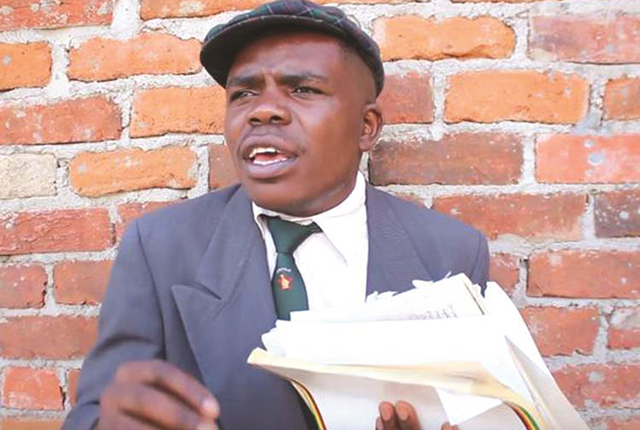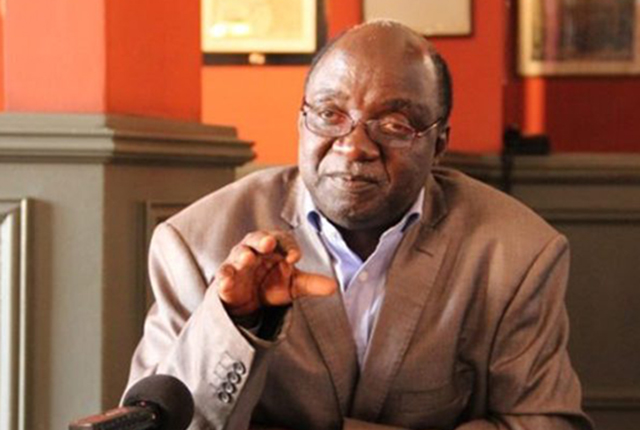Starved viewers binge on online videos

Delta Milayo Ndou #digitaldialoue—
I would undoubtedly be accused of gross exaggeration if I argued that among the many deprivations Zimbabweans have suffered over the years, the lack of quality entertainment in the form of enjoyable TV programming has been the most excruciating.I will not make such a hyperbolic claim, but I will state that the national broadcaster has sorely abused the nation by inflicting upon us the most relentlessly boring, repetitive and unrepentantly stale menu of TV shows as to make us wonder what we did to deserve such purgatory.
With time, and true to form, Zimbabweans sought alternative sources of entertainment leading to the rise of the VCR player, and then came the DVD player along with the mushrooming of video-for-hire businesses that capitalised on the desperation of despondent viewers.
We learned to fork out our hard-earned money to pay for and enjoy the privilege of decent video content or to opportunistically befriend those who could afford such luxuries in much the same way a neglected child learns to conveniently show up at a neighbour’s house just as the meal is being served.
We accepted that the national broadcaster was not going to meet our viewership needs and so we turned to satellite TV and purchasing a decoder became a household necessity.
Even in the most rundown suburbs of our country, satellite dishes perched in defiance as Zimbabweans demonstrated their contempt for local TV programming — they paid their way to the blissful world of SABC’s more tantalising broadcasting streamed into their homes via free-to-air decoders.
Calamity briefly struck in mid-2013, when millions of Zimbabweans who had accessed SABC 1, 2 and 3 free of charge through decoders like Wiztech, Philibao, Fortec Star and Vivid, were left staring at blank screens when the channels went off air.
Again, Zimbabwean viewers were undeterred in pursuing enjoyable entertainment as some quickly threw themselves at the mercy of fly-by-night technicians who charged between $25 and $40 claiming they could reverse this catastrophe.
Although the signals were later restored, the channel blackout had spawned a new industry, which has thrived since then — this was the industry of the pirate disc vendors who took to the street to cash in on desperate soapie lovers by peddling soapie DVDs pegged at $3 for the 5-episode omnibus editions of SA’s most popular soapies namely, Generations, Muvhango and Isidingo.
Those who couldn’t afford DStv subscriptions or decoders found solace in pirated discs so they too, could find reprieve from the national broadcaster’s torturously mind-numbing programme line up.
We were a nation shameless in our scavenging for decent and entertaining TV shows. We still are.
Social media video skits whet the appetites of viewers
As with other sectors, digital disruption has not spared the TV industry, as more smartphone users experiment with their gadgets and become self-taught, amateur video content producers.
Zimbabweans are no different as some of them have morphed from scavenging for video content to becoming creators of video content — the most notable trend in this regard being the 2014 viral video craze triggered by and responding to Philip Chiyangwa’s blatantly braggadocios “Zvinhu zviri kufaya” video.
The “Zvinhu zvirikufaya’ videos typically involved locally-based Zimbabweans bragging about how fantastic life was and involved mocking diaspora-based Zimbabweans for “jumping ship” while diaspora-based Zimbabweans responded by emphasising how wonderful their lives abroad were and were frequently punctuated with the vow “hatiuye ikoko” (we will never return).
The craze got most people practising and improving their video recording skills on their mobile phones and inadvertently acquainting themselves with video creation and consumption.
In a sense, one might argue that the craze accelerated local adoption of mobile technology in so far as video content creation was concerned (and perhaps, the rise of the infamous sex videos).
The earliest usage of the vow “hatiuye ikoko” (or similarly phrased oath) in my recollection, goes as far back as 2012, when I received a video via Blackberry messenger (WhatsApp wasn’t a thing yet) featuring a then unknown comical Baba Tencen, who bragged about how awesome life was as a lowly security guard in South Africa and how he could never leave such luxury to endure poverty in Zimbabwe.
Today, Baba Tencen commands a formidable following on social media and his video skits on Facebook have the added professional touch afforded by working with a dedicated director and backed by an aggressive marketing strategy.
Other comedic video acts, most of which begin with amateur video content production, have taken social media by storm and even attracted partnerships and sponsorships from corporates who use these highly popular comics to market events, products and services.
Amongst the growing list of Facebook pages dedicated to providing entertainment through user generated (and often amateur) satirical and comical video content are the likes of Prosper The Comic Pastor, Tendai Official, Tyra Chikocho, Oliver Keith’s #NaJesca, Bus Stop TV, The Bulawayo Show, P.O Box Reloaded and Future Sibanda’s Uglyshia among many others. The popularity of these comedic skits is testament to the never-ending pursuit for alternative entertainment by many locally based Zimbabweans who share the videos online as well as via mobile phones courtesy of WhatsApp.
Apart from Facebook, some Zimbabweans have taken a shine to YouTube with savvy young Zimbabweans such as “Us Two Zim” showcasing their awe-inspiring musical talents by preforming and uploading cover versions of songs by local musicians and winning the hearts of many.
Many local musicians have also found in YouTube, a ready platform to distribute their music and share it with a global audience without the need to suck up to or plead for airplay from the local TV or radio stations.
Of course a great deal of their hard work is eroded by the proliferation of pirate disc vendors, but that is an article for another day.Suffice to say, the appetite for video content among locally based Zimbabweans is voracious — and there is an opportunity for serious Video-On-Demand service providers to tap into a market that has proved it is willing to pay for reasonably-priced good entertainment.
Cheaper Internet access will enable better entertainment options
A conversation on the possibility of enjoying Video-On-Demand services in Zimbabwe inevitably necessitates a reflection on the cost and means of accessing the Internet — preferably on mobile devices and in Zimbabwean homes.
Presently, Internet service providers have pegged most of their packages at prohibitive prices for the average Zimbabwean and data costs are unreasonably priced, while cheaper Internet connection packages tend to have slow speeds that will discourage any video streaming attempts.
Good Internet connections with high speed come at high costs as regulatory bodies work to catch up with and curb extortionate data pricing by local mobile network operators as well as control the package pricing of internet service providers.
If the Postal and Telecommunications Regulatory Authority of Zimbabwe (Potraz) figures are anything to go by, the use of mobile data is on an upward trajectory and will likely increase should data rates be lowered.
Going forward, there is a high likelihood that the price of basic smartphones will decline (or at least payment plans will be attractive enough to entice buyers) and more people will own the means to create, share and consume amateur or semi-professional video content.
Already, some Zimbabweans have shown preference to spend their money on paying for monthly fixed wifi to enjoy TV shows online rather than foot DStv charges where some channels churn out repetitive content and I have seen one or two complaints on Twitter about how the weather keeps disrupting the signals.
However, to their credit, DStv have slashed their prices, which is a very welcome reprieve to many entertainment-starved viewers.
Our local broadcaster of course, will not even put up the pretense of caring about meeting their viewers’ entertainment needs — nothing underscores this nonchalance more than the fact that the ZBC board was once reported to have offered DStv subscriptions as a benefit to its executives.
It’s anyone’s guess when the local broadcaster will decide to clean up its act, but until then, we are on our own and we can now count on user-generated amateur and semi-professional video content producers to satisfy our need for good entertainment.
Delta is head of Digital at Zimpapers. Follow her on Twitter: @deltandou












Comments